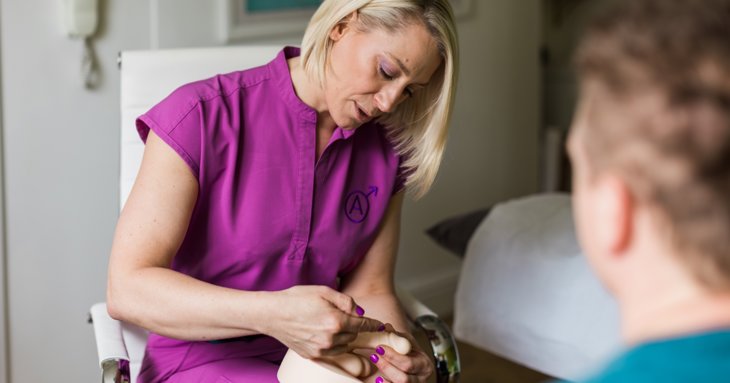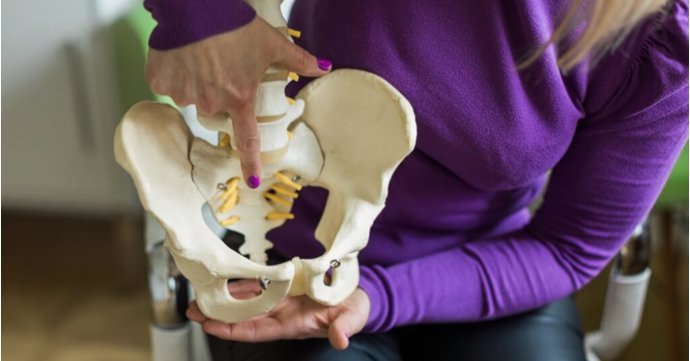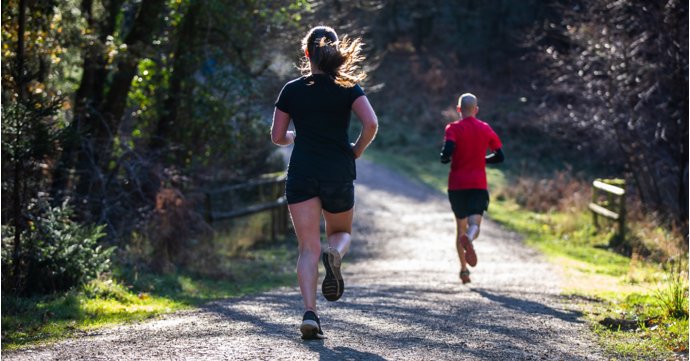One in five men in the UK are affected by erectile dysfunction — a common condition that can be caused by a range of physical, emotional or lifestyle-related factors — but only a quarter of them will seek treatment for it.
Reassuring patients that they're not alone and help is out there, Stephanie Smith-Rowles, director of Gloucestershire's only men's health physiotherapy clinic Aubergine Physio, speaks to SoGlos about the underlying causes of erectile dysfunction and how she can treat it with cutting-edge Focused Shockwave Therapy.
What are the underlying causes of erectile dysfunction?
There are a range of medical conditions, lifestyle choices and psychological factors — or a combination of them — which can result in erectile dysfunction.
Advancing age is a known cause, with erectile dysfunction tending to affect men from 45-years-old upwards, but it can occur at any age. In fact, one in four men seeking medical help for erectile dysfunction are younger than 40; the number of younger men affected is quite high, and on the rise, largely due to health and lifestyle factors.
Poor cardiovascular health is a big one. Cardiovascular disease is the biggest killer in the UK and erectile dysfunction is one of the side effects of this. A healthy heart means a healthy penis!
Additional lifestyle
factors such as smoking, recreational drug
use, stress, sleep deprivation, obesity, nutrition, alcohol consumption and
lack of physical exercise can have an impact on your penile health, too.
There are other chronic diseases which can cause men’s health
concerns, especially prostate cancer. Here at Aubergine Physio, we can support prostatectomy patients pre-operatively and post-surgery, with specialised physiotherapy
techniques and technology. (See Cheltenham
clinic offers treatment to help men after prostate cancer surgery for more information on this specifically.)
Mental health plays a part, with depression and anxiety increasing the risk of erectile dysfunction, but your cognitive state, environment and relationship play a big part in your ability to get an erection, too. Numerous factors can affect our psychophysical connections, like excessive porn use, which can reduce our attention span and put unrealistic expectations on our sexual experiences.
At Aubergine Physio, we treat the physical symptoms but work closely with practitioners to support your psychosexual health, too.
What makes Focused Shockwave Therapy an effective solution for erectile dysfunction?
It's a state-of-the-art treatment that targets the underlying causes of erectile dysfunction, providing a quick and painless solution without the need for medication.
For non-diabetic patients under the age of 75, with mild to moderate erectile dysfunction and no history of prostate cancer, it has a strong success rate of around 70 to 80 per cent.
Focused Shockwave Therapy works by stimulating the existing nerves, as well as regenerating new ones; it also breaks down plaques within the arteries and stimulates new blood vessels to grow. It's an effective way to regenerate penile tissue and new collagen.
It's non-invasive and there are no side effects or downtime. It isn't painful either — most patients can tolerate the highest level of intensity, which we offer at Aubergine Physio.
It's an effective treatment for mild to moderate erectile dysfunction, but patients will need to look at changing their lifestyle to avoid needing repeat treatment in the future.
What should patients expect during their treatment?
Patients with mild to moderate erectile dysfunction should expect to come in for around six sessions of treatment; for patients with moderate to severe erectile dysfunction, or those who have diabetes, we'd prescribe 12 sessions of Focused Shockwave Therapy.
We treat the base of the penis first, then the left-hand length of the shaft followed by the right-hand length. We also treat the crura, beneath the testicles in the perineal area to stimulate the nerve bundle around the prostate.
The shockwave isn’t painful. We increase the intensity with each treatment, as much as the patient can tolerate. It can feel uncomfortable, like a deep ache, but its tolerable and shouldn’t be painful. In fact, if a patient says it feels sensitive, it’s a good sign — it means their nerves are active and healthy.
When should someone seek treatment for erectile dysfunction?
The earlier, the better. Focused Shockwave Therapy can successfully treat men with mild to moderate erectile dysfunction — more severe cases will require more treatment and support.
If you're struggling with erectile dysfunction, the first thing to do is to see your GP for a general health MOT. Get your blood tested and make sure the prostate is healthy.
If there are no medical conditions or psychological health concerns, it's likely the condition is caused by lifestyle factors. Focused Shockwave Therapy can really help without resorting to alternative treatment options like Viagra or Cialis, Caverject penile injections or penile implants.
Once you have a diagnosis from your GP, we can get started. I'll ask patients to bring their clinic letters and blood work results in before we start treatment.
We ask patients to complete a few different questionnaires to indicate the severity of their erectile dysfunction: the IIEF-5 and Erectile Hardness Score are used as an objective measure prior to recommending treatment. We also ensure there are no contraindications like a ‘pacemaker’ and a full medical history is required to ensure there are no other comorbidities or health concerns.
The IIEF-5 form gives a score between one and 25 — the higher the score, the milder the case — asking patients how confident they are in their ability to get and maintain an erection; their ability to fully maintain an erection for the duration of sexual intercourse; and how satisfactory it is for them.
There’s also the Androgen Deficiency in Aging Males (ADAM) questionnaire, which asks simple questions about the patient and their lifestyle — if they have a lack of energy, decrease in strength or endurance and a tendency to fall asleep after dinner, for example. This can help to determine whether a patient might have low testosterone — if this is the case, testosterone HRT may be of benefit alongside lifestyle improvements.
Erectile dysfunction can be a sensitive and personal matter. How does Aubergine Physio provide a compassionate and discreet environment for patients?
We offer a free, 15-minute discovery call in the first instance, so men can ask any questions they may have.
A discovery call is when I'll answer their questions, offer reassurance that they're not alone and find out more about their situation and medical history — including whether they've been to the GP, urology, or andrology consultant to get a diagnosis and rule out any other pathology which may contribute to erectile dysfunction.
We will discuss whether they're taking active measures to improve their lifestyle, as this will ensure the results they get from Focused Shockwave Therapy are longer lasting.
When patients come to the clinic, we create a safe environment. Patients are covered with drapes, their dignity is respected, and once all the required medical information is complete and treatment has started, gentlemen find that conversation is relaxed. We talk about anything but the treatment!
The
application of Focused Shockwave Therapy is a relatively quick treatment of around 20-minutes in duration, but patients aren’t rushed, and we ensure that they don't bump into each other on arrival or departure. The clinic is discreet and appointments are well spaced out to respect their privacy.
How can patients reclaim their sexual health and confidence, post-treatment?
I'd recommend speaking to a psychosexual therapist, with or without your partner, to take control over your sexual wellbeing and discuss any anxiety or concerns around being unable to get an erection — which may also be hampering your ability to engage in sexual activity and have a happy sex life.
A 5mg dose of Cialis per day is also recommended as an accompaniment to Focused Shockwave Therapy. This helps men to achieve their 'maintenance' erections at morning and night, which are important for getting oxygenated blood into the penile structure regularly to prevent atrophy, shrinkage and retraction of the tissue.
Plus, the use of an iMedicare Penile SOMAerect pump or 'vacuum erection device' is considered physiotherapy for the penis, helping men to create daily cold erections, replacing their maintenance erections and ensuring regular blood flow to the penile tissues. Men can use this as a pre-sex device to gain an erection, with a penile ring at the base of the penis to maintain the erection during intercourse.
What supplements and lifestyle changes would you recommend to help men achieve a healthy erectile function after treatment?
We recommend supplements like beetroot juice which, alongside regular cardiovascular exercise and resistance training, helps to stimulate the natural production of nitric oxide. I would suggest they have beetroot juice daily or incorporate lots of fresh beetroot into their diet. Other foods high in nitric oxide include dark green leafy vegetables, like kale, rocket, chard and spinach.
Nitric oxide is a molecule that's produced naturally by your body,
which decreases as we age. Its most important function is vasodilation, meaning
it relaxes the inner muscles of the blood vessels, causing them to widen and
increase circulation — which can help to naturally stimulate better erectile
function.
There's also l-arginine, which is an amino acid supplement that helps the body build proteins and promotes better circulation — just make sure to check with your doctor that this doesn't interfere with any medication you're already on.
L-arginine is an amino acid naturally found in red meat, poultry, fish and dairy. It's necessary for making proteins and is commonly used for circulation, as the body converts it into nitric oxide.
Then, for long term results and healthy erectile function, it
really comes down to managing your lifestyle: cutting down or stopping smoking,
reducing your alcohol intake, avoiding recreational drug use, increasing your
activity, getting more than seven hours of sleep each night and improving your
diet and nutrition.
Looking
after your cardiovascular health is important — not just walking, but exercise
like cycling, running, cross training, swimming, hiking; anything that gets
your heart rate up. Strength or resistance training three times a week
will also help to boost testosterone.



















